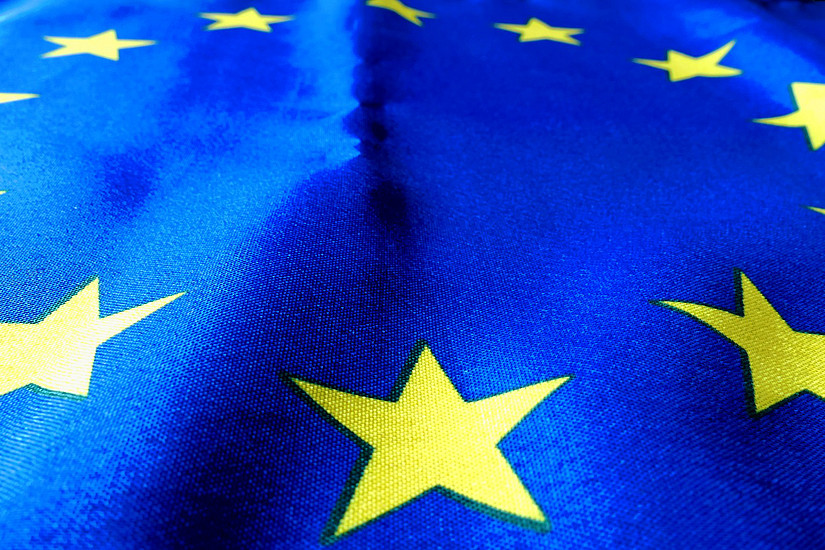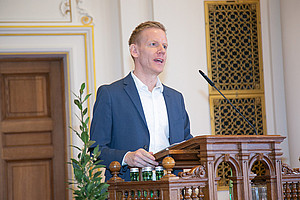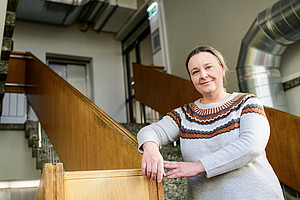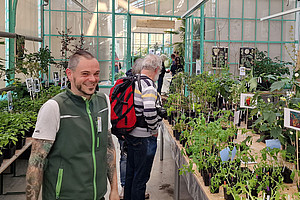The EU elections are coming up, but do we care what happens in distant Brussels? What kind of influence do our few Austrian representatives wield? And what does the EU Parliament make decisions about, anyway? This lack of information keeps young people in particular away from the ballot boxes. Teaching methodologist Britta Breser is working on strategies to address this.
Along with Malta, Austria is the only country in which young people aged sixteen and above will be allowed to vote on May 26. At the last Europe-wide vote, however, only 29.3 per cent of voters under 24 cast their ballot, in comparison to 45.4 per cent of the general population. “One of the main reasons that young people do not vote is a lack of information about the Union and its institutions”, says Britta Breser from the Regional Centre for Didactics of History, Social Studies and Political Education at the University of Graz. “And this despite the fact that young people are generally interested in politics, and in Europe”, says Breser. This is clearly seen in the appeal of Greta Thunberg. “Climate change and environmental protection are major issues for pupils, even more than the immigration of refugees and fairer distribution of wealth between the rich and the poor.”
Teenagers receive detailed information about specific topics and decisions, such as the new copyright law, through social media campaigns. “However, they have a difficult time situating specific knowledge into the overall picture, which results in distortions. What’s missing is structural background knowledge”, says Breser. She believes that conveying this information is an important task for schools. This is why, both in her courses for students in the teacher training programme and in continuing education courses for teaching staff in various types of schools, Breser focuses in particular on teaching about politics that are happening beyond Austria’s borders.
Missing subject
One challenge in teaching EU-related topics in schools is the absence of political education as an independent discipline. Often teachers are also uncertain themselves, which is reflected in their teaching. “Many things are communicated primarily from a national perspective. But we need a transnational position, a view from another level, to make decision-making processes transparent and open to participation”, explains Breser.
Young people are constantly confronted with transnational information in their consumption of digital media. “We urgently need to adjust our ideas regarding teaching about democracy. Critical media education is particularly important so that young people can properly assess and classify various news reports”, the researcher emphasises.
As a methodologist, she also forges personal contacts to EU representatives in her courses. “These direct relationships and the opportunity for discussion help us to better understand institutions and illuminate them in a critical light”, says Breser. The Centre for Didactics also has various other initiatives that attempt to sensitise instructors and students to European topics. One such initiative is the coordination of action days on political education in Styria, which will run until May 9.




